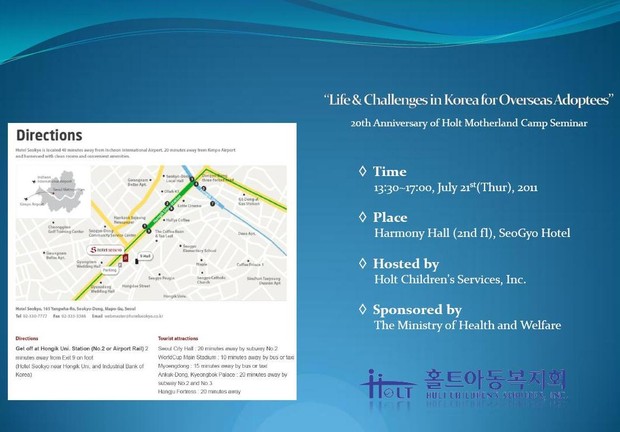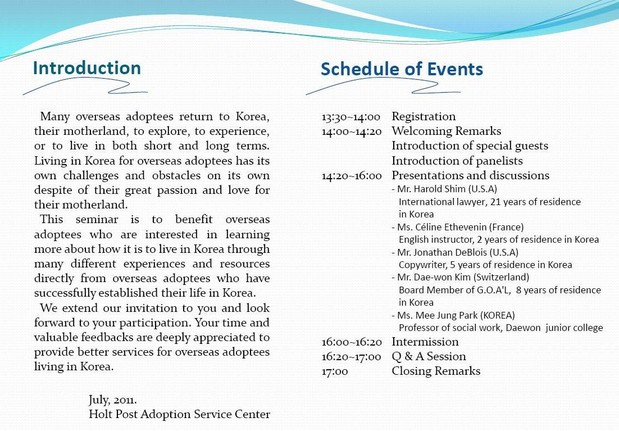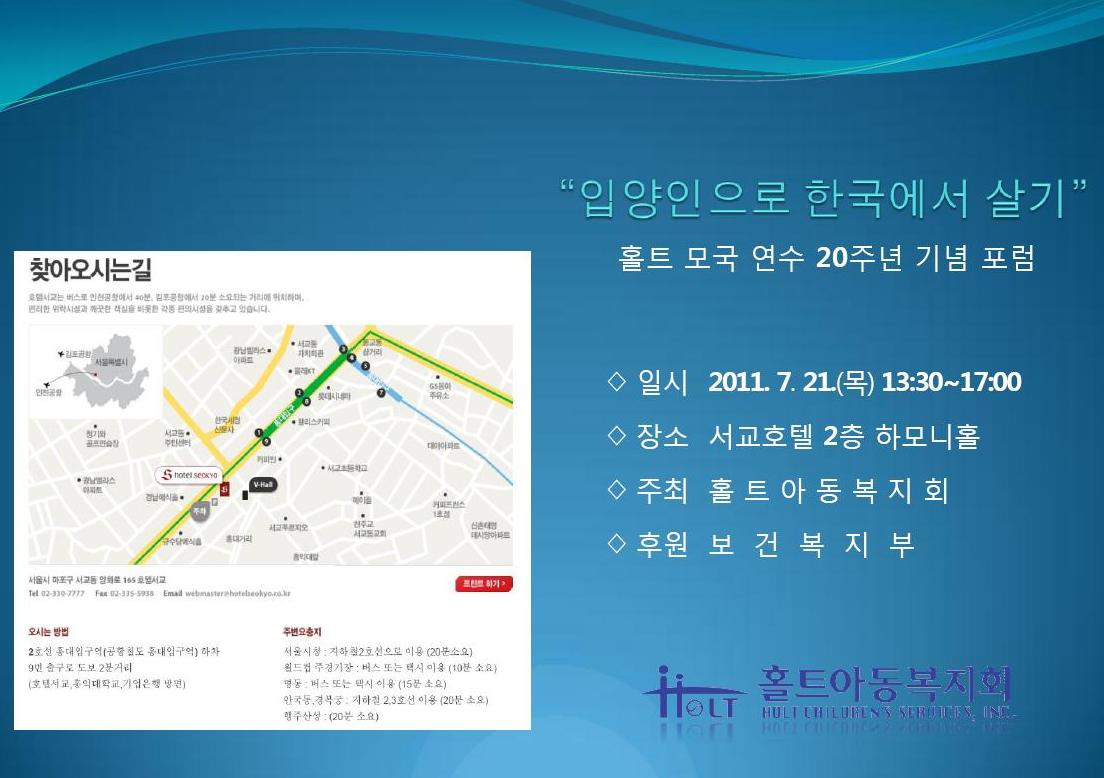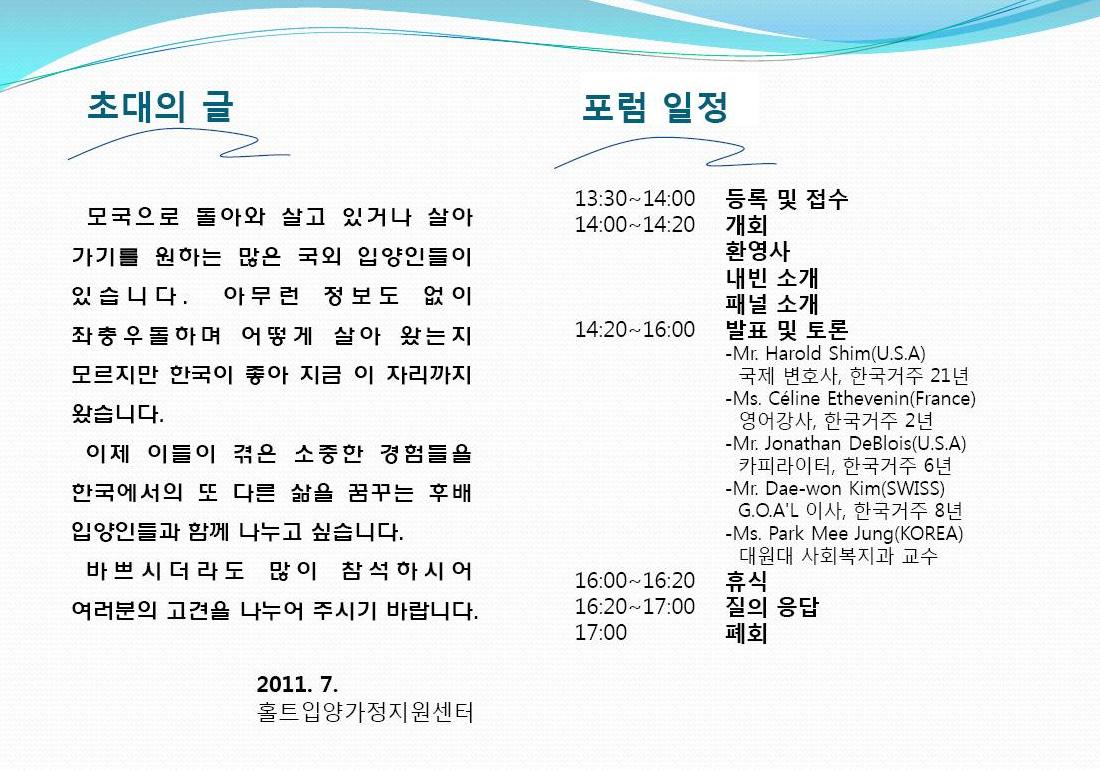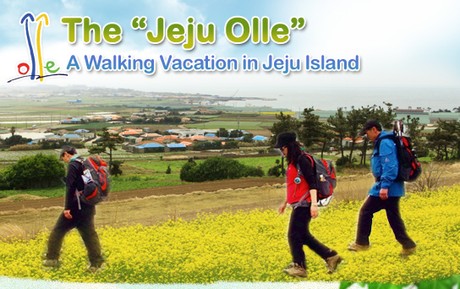
For the global traveler looking for a unique destination, the olle walking paths on Jeju Island are highly appealing.
These are 200km of connecting paths that will take travelers all along the south coast of Jeju Island. The Jeju Olle, which
were inspired by the famous Pilgrim’s Trail in Spain, was made from the hidden, forgotten routes of Jeju Island, which
cars cannot access.The route will take you to forests, mountains, beaches, and remote places and offer unrivalled
views over Jeju’s unique, dramatic, volcanic landscape.
With so many activities on offer in Jeju, it is not easy to say which is best, however the Jeju Olle walking paths must rank highly. By the end of 2008, some 30,000 visitors have been to the paths, including a number of celebrities in Korea. They offer the chance to experience life at a slower pace and are a total escape from the hustle and bustle of city life. Most of the paths are away from urbanized areas, and walkers are totally surrounded by nature and the tranquility. Some of the areas are almost untouched, since this is the first time some paths have been open to the public.
The paths are connected, so you can start your walk from where you finished the previous day. The route is divided into twelve sections, which will take you through along forests, beaches, and villages, where you can meet the warmhearted local people. We’ve provided an introduction to the paths, so you can choose which sections are best suited to you, or you can take a twelve-day trip and do all of them. Walking the Jeju olle paths will refresh you, inspire you, and leave memories you’ll never forget.

What does the Term "Olle" Mean?
In the local Jeju dialect "Olle" was originally used to refer to the narrow path between between the street and one’s doorstep. In the past, the word was quite commonly used, as children would often say, “let’s meet at the olle”. However, later this word came to be used more widely across Korea and the word came to mean the series of coastal walking paths in Jeju Island. The olle walking paths of Jeju start at the east point of the island and wind their way along the coast all the way to the island’s southwest point. The charms of the olle walking paths are their proximity to nature and the picturesque combination of the blue ocean, dark green forests, and the charming local villages.
The Olle Walking Paths
The first of these walking paths opened in September 2007.As of March 2009, some 13 walking paths had been completed, 12 main paths and one “alpha” path. The walking paths collectively stretch to a length of approximately 216km. The olle are paths that have developed naturally over the years. They have been connected to each other using minimal human intervention. Depending on the pace of the individual or group, each route will take roughly four to six hours. Walking along these small paths that take you through the mountains and along the coast is the best way to experience the unique, startling beauty of Jeju Island.

Tip 1. Following an Olle Walking Path!
Blue or blue and yellow ribbons have been placed along an olle path to guide visitors. These are found throughout the route usually along the stone piled walls, rocks, or on the surface of the road.
Tip 2. Bathrooms and Restaurants!!
As the olle have been arranged in an eco-friendly manner, there
are not many toilets or restaurants along the way. However, convenience
facilities can be found at the beginning or end of each path. Do take
water and snacks with you.
Tip 3. What to Prepare!*Shoes: visitors are advised to wear exercise or climbing shoes. During
the summer, sandals will also be useful to walk along the beach area.
Extra
Layers: Although the weather on Jeju-do is generally warm and pleasant,
it is often windy and there are frequently unexpected showers. Walkers
are advised to carry waterproof clothing and an extra, long-sleeved
outfit with them.
Guidebook: A guidebook is available free of charge
at the Information Desk of the Jeju International Airport. The guidebook
will include useful information on the Olle walking paths,
accommodation, and restaurants.
http://english.visitkorea.or.kr/enu/SI/SI_EN_3_4_12_16.jsp
